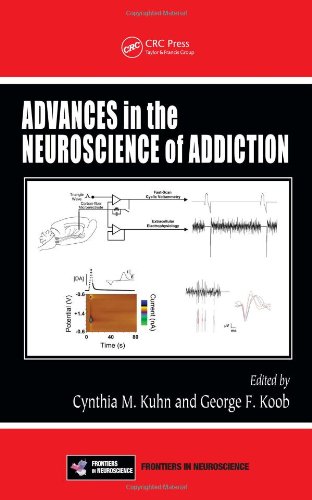
Advances in the Neuroscience of Addiction
by Cynthia M Kuhn, George F Koob
Publisher: CRC Press 2010
ISBN/ASIN: 0849373913
ISBN-13: 9780849373916
Description:
Understanding the phenomenon of long-lasting vulnerability to addiction is essential to developing successful treatments. Written by a distinguished international team of contributors who are authorities in their respective fields, Advances in the Neuroscience of Addiction provides an excellent overview of the available and emerging approaches used to investigate the biologic mechanisms of drug addiction.
Download or read it online for free here:
Read online
(online html)
Similar books
 Brain Asymmetry of Structure and/or Function
Brain Asymmetry of Structure and/or Functionby Lesley J. Rogers (ed.) - MDPI AG
Research on asymmetry in a broad range of species, including humans, is presented in the chapters of this book. The authors discuss behavioural lateralization, asymmetries in sensory receptors and neural organisation and the role of genes ...
(5553 views)
 Critical Care in Neurology
Critical Care in Neurologyby Kitchener, Hashem, Wahba, Khalaf, Zarif, Mansoor - Flying Publisher
The goal of neurointensive care is to treat and prevent primary and secondary brain injury. This book addresses the day-to-day management of patients in neurointensive care units and the clinical approach to common neurocritical conditions.
(10409 views)
 The Physics of Hearing
The Physics of Hearingby T. Reichenbach, A. J. Hudspeth - arXiv
To detect and process sound, the ear employs a highly nonlinear, adaptive, real-time spectral analyzer: the cochlea. Sound excites vibration of the eardrum and the three miniscule bones of the middle ear, the last of which acts as a piston ...
(7239 views)
 Itch: Mechanisms and Treatment
Itch: Mechanisms and Treatmentby E Carstens, Tasuku Akiyama (eds) - CRC Press
A timely update on all aspects of itch research and the treatment of itch that accompanies many dermatological conditions including psoriasis, neuropathic itch, cutaneous t-cells lymphoma, and systemic diseases such as liver disease and cancer.
(8167 views)